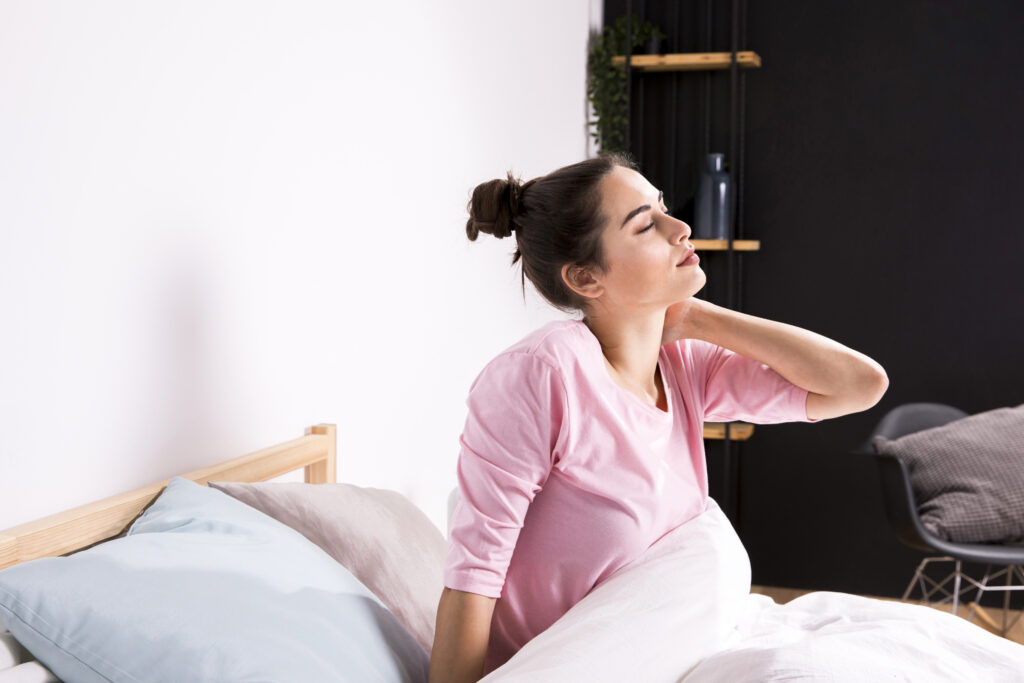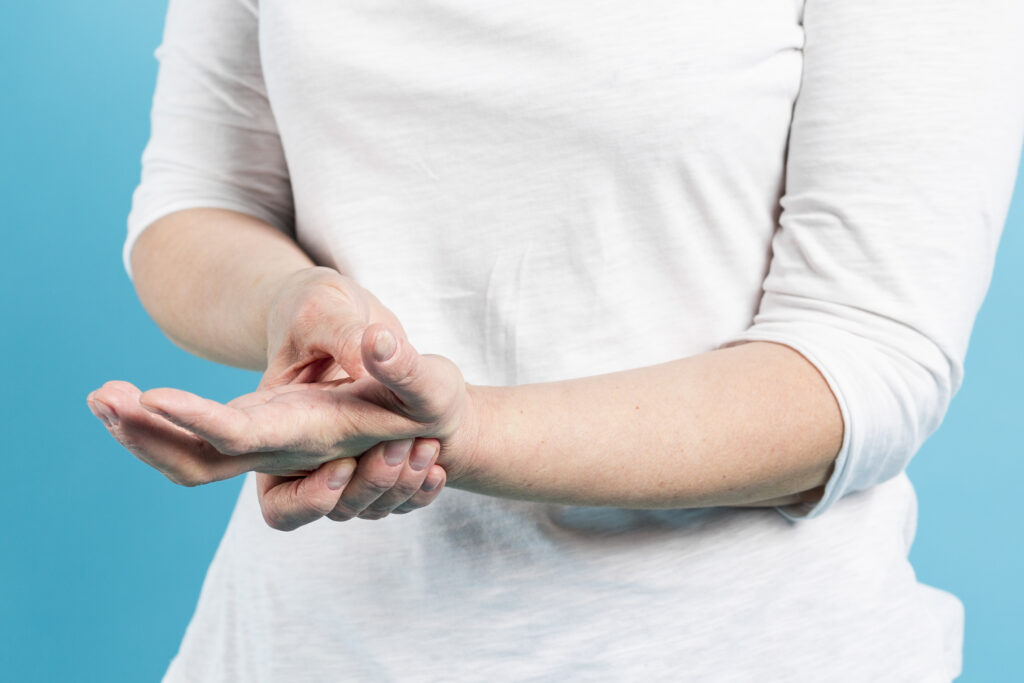You might be surprised by how many non-invasive therapies can effectively relieve stress without the need for medication or invasive procedures. From mindfulness practices that enhance your self-awareness to breathing exercises that calm your nerves, there's a range of options to explore. Even simple physical therapies like yoga and massage can create a profound shift in your mood and overall well-being. Curious about which methods might work best for you? Let's look closer at these approaches and discover how they can fit into your life.
Understanding Non-Invasive Therapy
Understanding non-invasive therapy can be a game-changer in managing stress. This approach focuses on techniques that don't require any surgical procedures or medication, making it a safe and accessible option for many. By exploring various methods, you can find the right fit for your needs and preferences.
One popular non-invasive therapy is cognitive behavioral therapy (CBT). This method helps you identify and change negative thought patterns that contribute to stress. Working with a therapist, you'll learn practical strategies to reframe your thoughts, which can lead to a more positive mindset and reduced anxiety.
Another effective option is mindfulness-based therapy. Here, you'll practice being present in the moment, helping you detach from stressors that often overwhelm you. Techniques like deep breathing, meditation, or guided imagery can enhance your sense of calm and clarity.
Art therapy and music therapy also fall under the non-invasive umbrella. These creative outlets allow you to express emotions and process experiences in a safe environment. Engaging in art or music can serve as a powerful release, helping you to cope with stress and improve your emotional well-being.
Don't overlook the potential of physical therapies like massage or acupuncture. These hands-on treatments can alleviate tension and promote relaxation, allowing you to manage stress more effectively.
Benefits of Mindfulness Practices
Mindfulness practices can greatly enhance your mental well-being and resilience against stress. By focusing on the present moment and cultivating awareness, you're not just alleviating stress; you're also fostering a healthier mindset.
Here's how mindfulness can benefit you:
- Improves focus and concentration: By training your mind to stay present, you can enhance your ability to concentrate on tasks.
- Reduces anxiety: Mindfulness helps you observe your thoughts without judgment, which can lower anxiety levels and promote a sense of calm.
- Enhances emotional regulation: Practicing mindfulness enables you to respond to emotions more effectively, allowing you to manage stress better.
- Promotes self-awareness: It encourages you to develop a deeper understanding of your thoughts and feelings, leading to better decision-making.
- Boosts overall well-being: Regular mindfulness can lead to improved relationships, better sleep, and a more positive outlook on life.
Incorporating mindfulness practices into your daily routine doesn't require a lot of time. Even a few minutes of mindful breathing or meditation can have a significant impact.
You might find that as you engage in these practices, you're better equipped to handle life's challenges. Whether it's through meditation, mindful walking, or simply being fully present in your daily activities, the benefits are clear.
Effective Breathing Exercises
Breathing exercises can be a powerful tool for relieving stress and enhancing your overall mental well-being. By focusing on your breath, you can shift your attention away from stressors and create a sense of calm.
One effective technique is deep breathing. To start, find a comfortable position, close your eyes, and inhale deeply through your nose, allowing your abdomen to expand. Hold your breath for a moment, then exhale slowly through your mouth. Repeat this process for several minutes, and you'll notice a reduction in tension and a clearer mind.
Another helpful exercise is the 4-7-8 technique. Inhale quietly through your nose for a count of four. Hold your breath for a count of seven, allowing your body to relax. Finally, exhale completely through your mouth for a count of eight. This rhythmic pattern helps regulate your heart rate and promotes relaxation. Practicing this regularly can considerably lower your stress levels.
You might also try box breathing, which involves inhaling for a count of four, holding for another count of four, exhaling for four, and holding again for four. This structured approach creates a sense of stability and can be particularly effective during stressful situations.
Whichever technique you choose, dedicating just a few minutes each day to breathing exercises can make a world of difference. You'll feel more in control and better equipped to handle whatever life throws your way.
Exploring Massage Therapy
If you've ever felt the soothing touch of a massage, you know how it can melt away tension and stress. Massage therapy isn't just a luxurious treat; it's a powerful tool for stress relief and overall well-being. You'll find various types of massage techniques, each uniquely designed to address different needs.
Whether you're looking to alleviate muscle pain, enhance circulation, or simply unwind, there's a massage style for you.
Here are some benefits of massage therapy to reflect on:
- Reduces anxiety: Regular sessions can lower cortisol levels, helping you feel more relaxed.
- Improves sleep: The calming effect of massage can enhance your sleep quality.
- Boosts immunity: Massage can improve your body's immune response, keeping you healthier.
- Increases flexibility: It helps loosen tight muscles and increases joint mobility.
- Enhances mood: The release of endorphins during a massage can elevate your overall mood.
When you schedule a massage, communicate your specific needs and preferences with your therapist. They can customize your session to focus on areas that need the most attention.
Remember to breathe deeply during the session, allowing yourself to fully embrace the experience. Regular massages can be an essential part of your stress management routine, promoting not just physical relaxation, but emotional balance, too.
The Role of Acupuncture
Acupuncture can be a powerful tool for managing stress and promoting relaxation.
By stimulating specific points on your body, it helps balance your energy and reduce tension.
Let's explore how it works and the benefits you can experience from this ancient practice.
Benefits of Acupuncture
For centuries, practitioners have turned to acupuncture as a powerful tool for stress relief. This ancient therapy offers numerous benefits that can enhance your overall well-being.
If you're looking for a natural way to reduce stress, acupuncture might just be what you need. Here are some key benefits you can expect:
- Reduces anxiety: Acupuncture helps calm your mind by balancing your body's energy.
- Improves sleep: By promoting relaxation, acupuncture can enhance your sleep quality and help combat insomnia.
- Boosts mood: Regular sessions can increase the release of endorphins, promoting a happier, more positive outlook.
- Enhances overall health: Acupuncture can help improve your immunity, reducing the frequency of stress-related illnesses.
- Promotes relaxation: The process encourages deep relaxation, making it easier to cope with life's challenges.
Incorporating acupuncture into your stress relief routine can provide you with a holistic approach to managing stress.
If you're ready to experience these benefits, consider booking a session with a qualified practitioner. You'll likely find that your body and mind respond positively, helping you navigate your daily life with greater ease and resilience.
How It Works
While you might be familiar with acupuncture as a method for relieving stress, understanding how it works can enhance your appreciation of this ancient practice. Acupuncture involves inserting thin needles into specific points on your body, known as meridians. These points correspond to various organs and systems, and stimulating them helps balance your body's energy, or Qi.
When you undergo acupuncture, your body releases endorphins and other neurotransmitters, which can reduce pain and promote relaxation. This physiological response lowers cortisol levels, effectively decreasing stress. The treatment also improves blood circulation, helping deliver oxygen and nutrients to your tissues, which can enhance overall well-being.
During a session, you might feel a slight prick as the needles go in, but many find the experience calming. As you lie still, your body begins to unwind, and you may even drift into a meditative state.
Regular acupuncture sessions can help reset your body's stress response, making it easier for you to cope with daily challenges. Over time, you'll likely notice improved emotional resilience and a greater sense of peace.
Incorporating Yoga and Meditation
In the quest for stress relief, incorporating yoga and meditation can be transformative. These practices not only promote relaxation but also cultivate mindfulness, helping you better manage daily pressures. By dedicating just a few minutes each day, you can make significant strides in reducing stress levels.
Here are some key benefits of adding yoga and meditation to your routine:
- Improves Focus: Regular practice sharpens your concentration, making it easier to tackle tasks.
- Enhances Mood: Both yoga and meditation can boost your mood and increase feelings of happiness.
- Promotes Relaxation: Deep breathing techniques help calm your mind and body, reducing anxiety.
- Increases Flexibility: Yoga improves physical flexibility, which can alleviate tension in your body.
- Encourages Mindfulness: These practices teach you to be present, allowing you to respond to stressors more effectively.
To get started, find a quiet space where you won't be disturbed. Begin with simple yoga poses, focusing on your breath as you move through each position.
After your session, spend a few minutes in meditation, allowing your thoughts to settle. You don't need to be an expert; even a few minutes daily can yield benefits.
As you integrate these practices into your life, you'll likely notice a shift in your overall well-being. The combination of yoga and meditation can serve as a powerful tool in your stress-relief toolkit, helping you navigate life's challenges with greater ease and resilience.
Conclusion
Incorporating non-invasive therapies into your routine can greatly reduce stress and enhance your well-being. By practicing mindfulness, engaging in breathing exercises, trying massage therapy, exploring acupuncture, and embracing yoga and meditation, you can find what works best for you. Remember, consistency is key—make these practices a regular part of your life, and you'll likely notice a positive shift in your stress levels and overall mental and physical health. Start today, and take a step toward a calmer you!



